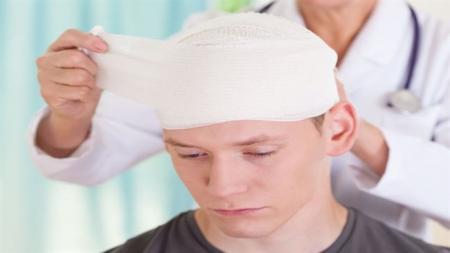
The study, which looked at health insurance claims for almost 9 million Americans, found that concussion diagnoses more than doubled between 2007 and 2014.
The big question is whether the increase reflects a true rise in the number of injuries or an increase in diagnoses — or both.
The most significant jump was seen among 10- to 14-year-olds, whose injury rate more than tripled, the study found. They were followed closely by 15- to 19-year-olds.
The causes of those concussions are unknown, according to lead researcher Dr. Alan Zhang, of the University of California, San Francisco.
But, he said, head injuries from sports and other physical activities -- such as bike riding and skateboarding -- are likely the main drivers.
Past studies have pointed to similar spikes in concussions among children and teens. But, Zhang said, they've focused on specific groups, like high school athletes.
"Our study looked at a broad cross-section of the population," he noted.
In recent years, Zhang said, the issue of sports-related concussion has received growing attention. So parents, coaches and young athletes are all getting more education on how to recognize and respond to a possible concussion.
Kenneth Podell, a neuropsychologist and director of the Houston Methodist Concussion Center, pointed out that US states now have laws designed to ensure kids are evaluated for potential concussion symptoms.
Since 2009, all 50 states and Washington, D.C., have passed laws targeting concussion in high school and younger athletes, according to the US Centers for Disease Control and Prevention.
The regulations, often called ‘return-to-play’ laws, typically require kids to be immediately removed from a game if a concussion is suspected. They also usually require a doctor's OK before a concussed athlete can return to the sport, according to the CDC.
In 2007, the first year analyzed in the new study, those laws did not exist.
To Podell, who was not involved in the research, the increase in concussion diagnoses is a good sign.
"I see this as a positive trend," he said. "We're finally taking this condition as seriously as we should."
That said, Podell added, the findings could also reflect a rise in the number of children and teens being injured. "Is this because more kids are outside being active?" he said. "We don't have the data to know."
